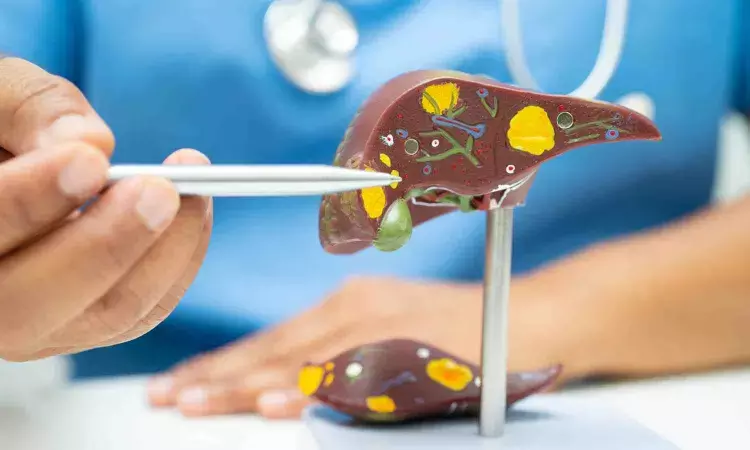- Home
- Medical news & Guidelines
- Anesthesiology
- Cardiology and CTVS
- Critical Care
- Dentistry
- Dermatology
- Diabetes and Endocrinology
- ENT
- Gastroenterology
- Medicine
- Nephrology
- Neurology
- Obstretics-Gynaecology
- Oncology
- Ophthalmology
- Orthopaedics
- Pediatrics-Neonatology
- Psychiatry
- Pulmonology
- Radiology
- Surgery
- Urology
- Laboratory Medicine
- Diet
- Nursing
- Paramedical
- Physiotherapy
- Health news
- Fact Check
- Bone Health Fact Check
- Brain Health Fact Check
- Cancer Related Fact Check
- Child Care Fact Check
- Dental and oral health fact check
- Diabetes and metabolic health fact check
- Diet and Nutrition Fact Check
- Eye and ENT Care Fact Check
- Fitness fact check
- Gut health fact check
- Heart health fact check
- Kidney health fact check
- Medical education fact check
- Men's health fact check
- Respiratory fact check
- Skin and hair care fact check
- Vaccine and Immunization fact check
- Women's health fact check
- AYUSH
- State News
- Andaman and Nicobar Islands
- Andhra Pradesh
- Arunachal Pradesh
- Assam
- Bihar
- Chandigarh
- Chattisgarh
- Dadra and Nagar Haveli
- Daman and Diu
- Delhi
- Goa
- Gujarat
- Haryana
- Himachal Pradesh
- Jammu & Kashmir
- Jharkhand
- Karnataka
- Kerala
- Ladakh
- Lakshadweep
- Madhya Pradesh
- Maharashtra
- Manipur
- Meghalaya
- Mizoram
- Nagaland
- Odisha
- Puducherry
- Punjab
- Rajasthan
- Sikkim
- Tamil Nadu
- Telangana
- Tripura
- Uttar Pradesh
- Uttrakhand
- West Bengal
- Medical Education
- Industry
AI finds undiagnosed liver disease in early stages, suggests study

SAN DIEGO: Liver disease, which is treatable when discovered early, often goes undetected until late stages, but a new study revealed that an algorithm fueled by artificial intelligence can accurately detect early-stage metabolic-associated steatotic liver disease (MASLD) by using electronic health records. The study was scheduled for presentation today at The Liver Meeting, hosted by the American Association for the Study of Liver Diseases.
“A significant proportion of patients who meet criteria for MASLD go undiagnosed,” said Ariana Stuart MD, a resident at University of Washington Internal Medicine Residency Program and lead author of the study. “This is concerning because delays in early diagnosis increase the likelihood of progression to advanced liver disease.”
Researchers used an AI algorithm to analyze imaging findings in electronic health records from three sites within the University of Washington Medical System to identify patients who met the criteria for MASLD, the most common form of liver disease, affecting 4.5 million adults in the United States. While 834 patients met the criteria, only 137 actually had an official MASLD-associated diagnosis in their record. This left 83% of patients undiagnosed even when data in their electronic health record showed they met the criteria for MASLD.
“People should not interpret our findings as a lack of primary care training or management,” Stuart said. “Instead, our study shows how AI can complement physician workflow to address the limitations of traditional clinical practice.”
MASLD occurs when fat isn’t managed properly in the liver and is often associated with other common diseases such as obesity, Type-2 diabetes, and abnormal cholesterol levels. Early diagnosis of MASLD is key because it can quickly progress to more severe forms of liver disease, but many individuals in this early stage are asymptomatic, making diagnosis challenging.
Ariana Stuart, MD, will present the study, “Artificial Intelligence for Early MASLD Identification in the Electronic Medical Record,” abstract 2360, on Saturday, Nov. 16 at 8 a.m. PST.
Dr Kamal Kant Kohli-MBBS, DTCD- a chest specialist with more than 30 years of practice and a flair for writing clinical articles, Dr Kamal Kant Kohli joined Medical Dialogues as a Chief Editor of Medical News. Besides writing articles, as an editor, he proofreads and verifies all the medical content published on Medical Dialogues including those coming from journals, studies,medical conferences,guidelines etc. Email: drkohli@medicaldialogues.in. Contact no. 011-43720751
Next Story


